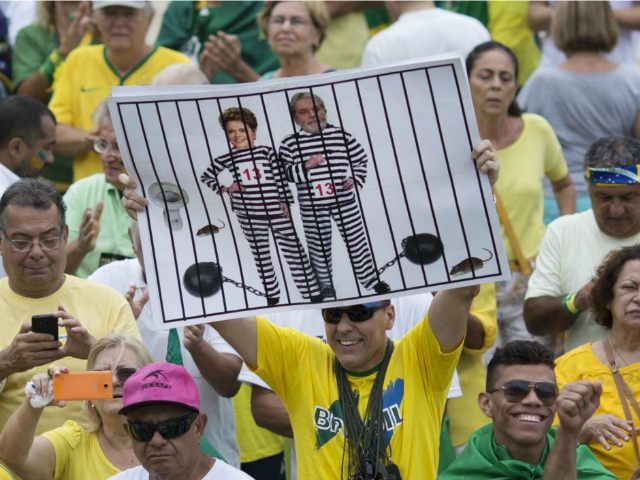The International Olympic Commission issued a statement saying it was “closely monitoring” the increasingly unstable political situation in Brazil but was “very confident” the nation would be able to competently host the Summer Olympics this August regardless of the outcome of weeks of protests demanding impeachment of President Dilma Rousseff.
“Naturally we are closely monitoring the political developments currently affecting the country and we’re working in solidarity with the organising committee,” a spokesman for the Olympic Commission told the Agence France-Presse, adding, “the Brazilian people will deliver a memorable Olympics, full of passion for sports which has made them famous globally.”
“We’re very confident that through this joint effort by the Brazilians and the Olympic movement, Brazil will offer an excellent Olympic Games to the world, which the whole country can be proud of,” the spokesman concluded.
Rio de Janeiro is scheduled to host the Summer Olympics this year, beginning in early August, but Rio has been one of the nation’s major focal points for anti-government protests. An estimated million people gathered at Copacabana beach on March 13 to demand either impeachment or resignation for Rousseff and her socialist Workers’ Party (PT), a week after news broke of law enforcement detaining and interrogating Rousseff’s predecessor, former President Luiz Inacio Lula da Silva.
Following reports that da Silva could be arrested on corruption charges, Rousseff appointed him her chief of staff, granting him executive immunity. The appointed triggered further protests, though a court has blocked it as a potential attempt to obstruct justice.
Subsequent protests following the March 13 assemblies have become increasingly violent. At a protest in Sao Paulo Tuesday, police used tear gas and rubber bullets to control a crowd of students calling for da Silva to be arrested. Police also struggled to keep the crowd away from a smaller assembly of pro-Rousseff agitators that attempted to confront the group.
Da Silva has been implicated in an extensive corruption probe known as “Operation Car Wash,” which has so far uncovered that a kickback scheme operating through the nation’s state-owned oil corporation, Petrobras, defrauded those doing business with them to the tune of millions. Evidence has surfaced that da Silva used stolen Petrobras money to fund his campaigns.
The Brazilian Congress has initiated procedures to impeach Rousseff, meanwhile, on unrelated accusations regarding misuse of national funds. A poll released Tuesday found that 68 percent of Brazilians support her impeachment.
Observers fear a Summer Olympics ceremony has never been held amid such political turmoil. “We don’t know if we’ll have this government or some other government when the Olympics arrive,” Alberto Ramos, head of Latin America economic research at Goldman Sachs, tells CNN. Paulo Sotero, director of the Brazil Institute at the Wilson Center, laments to the network that the Olympics were “going to be the coming out party for Brazil,” but festivities will likely be “scaled down.”
This is not the first time this year that the Olympics Commission has had to address a crisis in Brazil threatening to force a cancelation of the games. A month ago, global outcry grew demanding the Olympic Commission reconsider Brazil as a host country while the number of cases of Zika virus in the country grew to upwards of one million. The Zika virus has been linked to cases of microcephaly, a rare birth defect, in the country, prompting some female athletes to declare they are considering not attending the games. The U.S. Olympic Team told its members they can choose to stay home if they fear contracting the virus.
President Dilma Rousseff’s attempt to address the nation about the dangers of Zika in February was largely drowned out in major cities by pot-banging protests known as panelaços by angry citizens calling for her resignation. Zika coverage has also taken a backseat in national media to the ongoing scandal plaguing her government.
“The IOC absolutely is not complacent. We do take this very seriously… Everything is being done to contain and reduce this problem in the lead-up to the games,” Olympic Commission medical director Dr. Richard Budgett said at the time, assuring reporters there were no plans to cancel the games.

COMMENTS
Please let us know if you're having issues with commenting.